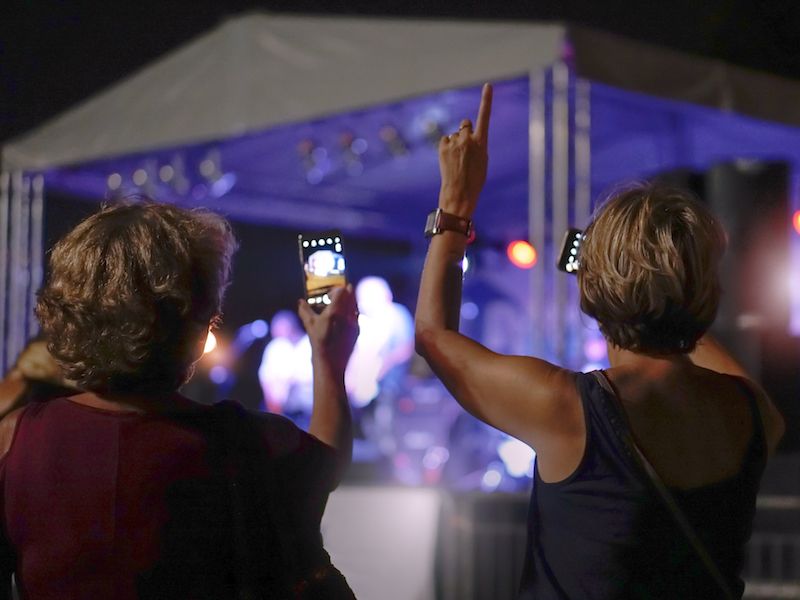
We’ve been getting excited about summer fun all year: swimming in the pool, going to the beach, and other activities that might harm your ears. That’s right, summer has a lot of hidden risks to your ears, either from loud sounds or the environmental scenarios you could find yourself in. Any noises over 80 decibels could injure your hearing, while enduring loss of hearing can happen in swimming pools or other bodies of water. To keep your ears safe and sound this summer, you need to be conscious of your surroundings and take precautions. Here are six of the summer’s concealed hearing dangers.
Wear Hearing Protection at Concerts
Whether you’re at an indoor stadium or an outdoor show venue you still need to use ear protection during live music. 90 decibels is in the danger zone for ear damage and concerts reach this volume even at outdoor venues. That’s the reason it’s definitely a good plan to use earplugs whether you’re going to a concert indoors or outdoors. You can still hear the tunes with earplugs in it’s just dampened a little bit. If you’re going to a performance with young children, think about getting them a heavy duty set of earmuffs since their ears are much more delicate than those of adults.
It’s More Than Just Loud at Fireworks
Honestly, there are a lot of reasons to avoid fireworks in the summer. It’s not only the 4th of July shows which are pro that can damage your hearing, we mean the backyard fireworks that lead to many of injuries during the summertime. Backyard fireworks achieve volume levels of over 155 which can damage your ears as well as causing hand problems, loss of sight and backyard fires. This 4th of July, leave the fireworks to the professionals and enjoy the display from a safe and sound distance.
Hearing Loss Can be Caused by Lawnmowers
If you love to take care of your lawn, your edger, trimmer, and mower are your best friends. But have you ever noticed how off your ears feel when you get done, how everything sounds muffled or your ears are ringing? That’s because the lawn tools, which are constantly loud, have a slow and steady impact on your hearing. If you’ve ever seen landscapers, you most likely have noticed them wearing hearing protection, next time you do yard work with noisy power equipment, you should take a cue from them and wear earplugs or earmuffs.
Hears How to Safeguard Your Hearing When You go Swimming
Huge numbers of people suffer from swimmer’s ear every summer, which happens when bacteria-loaded water gets stuck in your ear canal. The bacteria then infects the ear, producing painful earaches and swelling. It’s not just lakes and rivers that hold these bacteria, they can sometimes be found in hot tubs and pools if they aren’t cleaned and treated thoroughly. No lasting injury should take place if you have your ears assessed by a hearing specialist. To be safe, when swimming in your pool, wear special swimmers earplugs and keep the chemical balance correct to lessen the likelihood of getting swimmers ear.
Boats and Other Water Sports
Summertime is a breath of freedom for the people who enjoy being in a boat on the water, smelling the salt air from the ocean or the fresh breeze of the lake. But, boat and jet ski engines are often noisy,they can get up to over 100 decibels. Continuous subjection to that kind of noise for a period of about 15 minutes can lead to permanent hearing damage. In this situation also, using a set of disposable foam earplugs is a smart plan.
Your Hearing Can be Injured by Car Races
It doesn’t matter what type of auto racing you like, stock cars, midgets, motorcycles, drag racing, Formula 1. If you attend many auto-races this summer, they all pose a peril. 120 dB is well within the danger zone for hearing impairment and quite a few races go way above this. As mentioned before, your children should wear muffs while you should wear earplugs at the very least. Because you may not be able to appreciate the sounds of any races in the future if you don’t.
